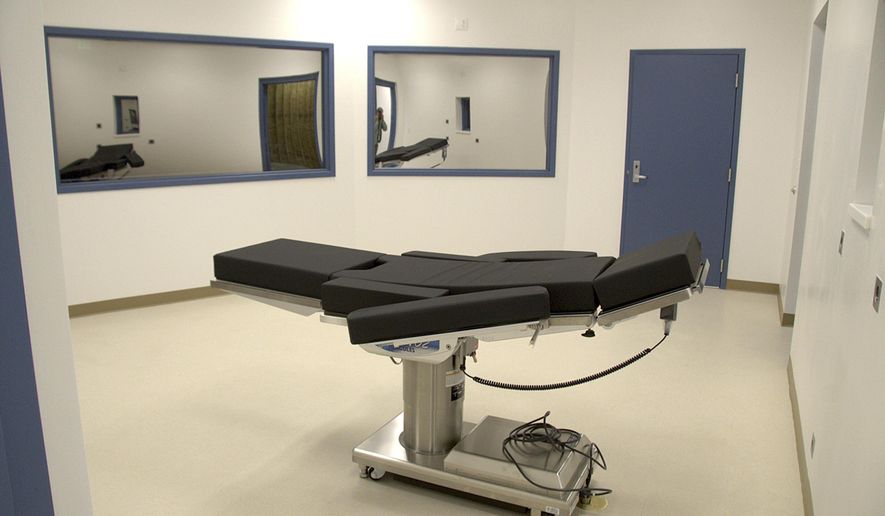LAS VEGAS (AP) - A nearly two-year court fight over drugs that Nevada obtained for an execution it never carried out has ended with pharmaceutical companies taking back their expired products and the state accepting refunds, with no clear decision about how a lethal injection could be carried out.
A judge in Las Vegas dismissed the case Tuesday after both sides agreed to drop a lawsuit that arose from former death row inmate Scott Raymond Dozier’s effort to be executed.
Dozier, a twice-convicted murderer, gave up appeals and declared he wanted to die rather than live his life behind bars. He killed himself last year in prison, making moot the drug makers’ lawsuit aimed at halting the use of their products for lethal injection.
State Attorney General Aaron Ford acknowledged Thursday the dismissal means the state, with about 80 convicts on death row, does not have the drugs to carry out an execution.
Attorneys for two drug companies involved in the case did not immediately respond to emails. An attorney for pharmaceutical maker Sandoz Inc. declined to comment.
Dozier’s execution would have been the first in Nevada since 2006. It was scheduled and called off twice amid challenges involving the three-drug combination including the sedative midazolam, the powerful opioid fentanyl and a muscle-paralyzing agent called cisatracurium.
The agreement involving Ford, a Democrat, and drug makers Alvogen, Hikma Pharmaceuticals USA and Sandoz leaves each to pay their own legal costs. It closed the book on a lawsuit first filed by Alvogen in 2018 against Ford’s predecessor, Republican Adam Laxalt.
“This is an example of the futility of the death penalty and wasted money,” said Scott Coffee, a veteran public defender in Las Vegas who lobbies the Legislature on the issue. “Years of litigation and we end up with nothing. When the state goes to clandestine means to obtain drugs to kill somebody you have outcomes like that.”
The agreement did not address whether Nevada’s death penalty protocol is humane or constitutional.
Pharmaceutical firm attorneys told Clark County District Court Judge Elizabeth Gonzalez that state prison officials used secrecy and suberfuge to obtain, through a third-party supplier, the drugs to be used in combination.
The sedative was intended to calm the inmate, lethal doses of fentanyl would slow and stop metabolism, and the muscle-paralyzing drug would ensure breathing ends. Fentanyl has been blamed for illegal-use drug overdose deaths nationwide.
The companies argued they didn’t want their products used in executions.
Attorneys for the state countered that no ruse or subterfuge was needed to obtain the drugs, and the companies had no control over how purchased products are used.
An appeal to the Nevada Supreme Court drew support from 15 of 30 other states in the U.S. with capital punishment, but it was dismissed with no ruling after Dozier’s death. Officials said at the time the drugs would expire.
The states that backed Nevada argued that harassment from advocacy groups and threats of company boycotts are keeping prison officials from enforcing the will of voters in states with capital punishment.
A new Nevada execution chamber costing some $860,000 was completed in 2016 at Ely State Prison, 250 miles north of Las Vegas. It has never been used.




Please read our comment policy before commenting.